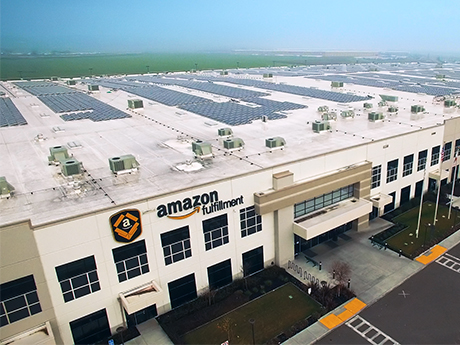Amazon’s Unsafe Working Conditions

New York is suing Amazon for its utter indifference about its workers contracting COVID-19.
New York’s attorney general, Letitia James, sued Amazon on Tuesday evening, arguing that the company provided inadequate safety protection for workers in New York City during the pandemic and retaliated against employees who raised concerns over the conditions.
The case focuses on two Amazon facilities: a large warehouse on Staten Island and a delivery depot in Queens. Ms. James argues that Amazon failed to properly clean its buildings, conducted inadequate contact tracing for known Covid-19 cases, and “took swift retaliatory action” to silence complaints from workers.
“Amazon’s extreme profits and exponential growth rate came at the expense of the lives, health and safety of its frontline workers,” Ms. James argued in the complaint, filed in New York Supreme Court.
Kelly Nantel, a spokeswoman for Amazon, said the company cared “deeply about the health and safety” of its workers.
By care deeply, Nantel meant “precisely enough that we don’t want to get sued.”
New York, in its suit, said Amazon received written notification of at least 250 employees at the Staten Island warehouse who had Covid-19. In more than 90 of those cases, the infected employee had been at work in the previous week, yet Amazon did not close portions of the building to provide proper ventilation as the state required, the filing said.
Ms. James said that until at least late June, Amazon did not interview infected workers to determine their close contacts and instead relied on reviewing surveillance footage, which could take three days and did not cover the entire warehouse. The lack of interviews “created a very time-consuming process which did not identify close contacts in a timely fashion,” the complaint said.
She also argued that Amazon retaliated against Christian Smalls, a worker the company fired in the spring. Mr. Smalls had been raising safety concerns with managers and led a public protest in the parking lot of the Staten Island facility.
Amazon has said Mr. Smalls was fired for going to the work site for the protest even though he was on paid quarantine leave after he had been exposed to a colleague who had tested positive for the coronavirus.
All of this is why it is so important to organize Amazon. It’s somewhat interesting that the first serious effort to do so is not in New York or some other state with a strong union tradition, but rather in Alabama. But whatever happens in that vote, these conditions will continue until Amazon is organized wall-to-wall. Certainly state attorney generals can help hold the company accountable and this lawsuit is welcome. But the real issue is the need for workers’ voices in decision making in the company.


